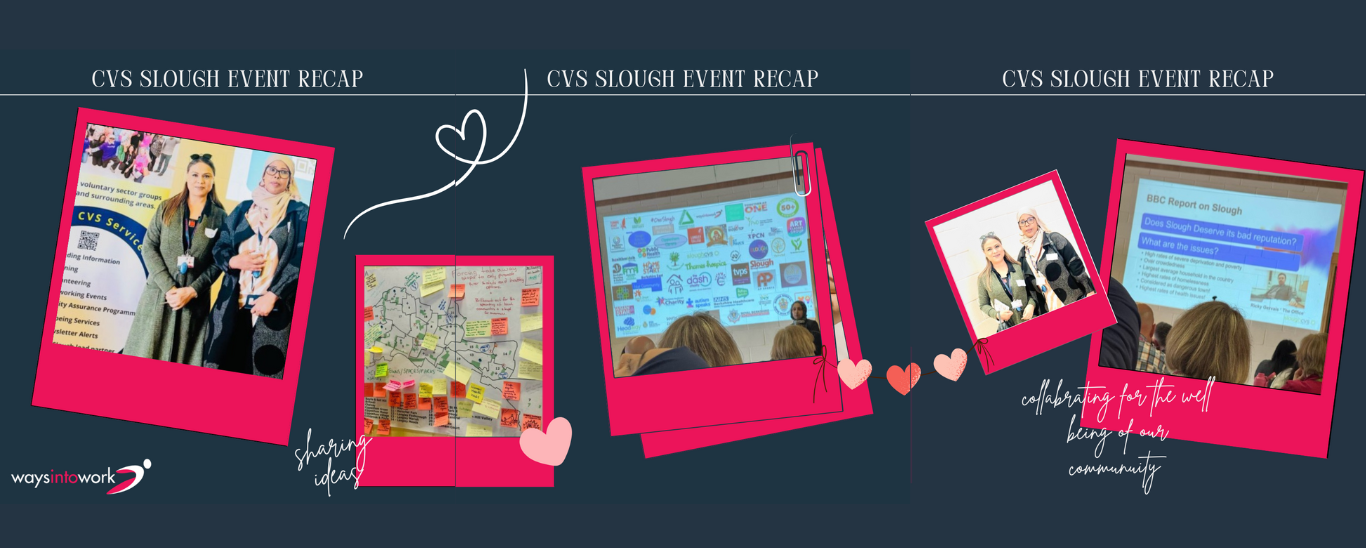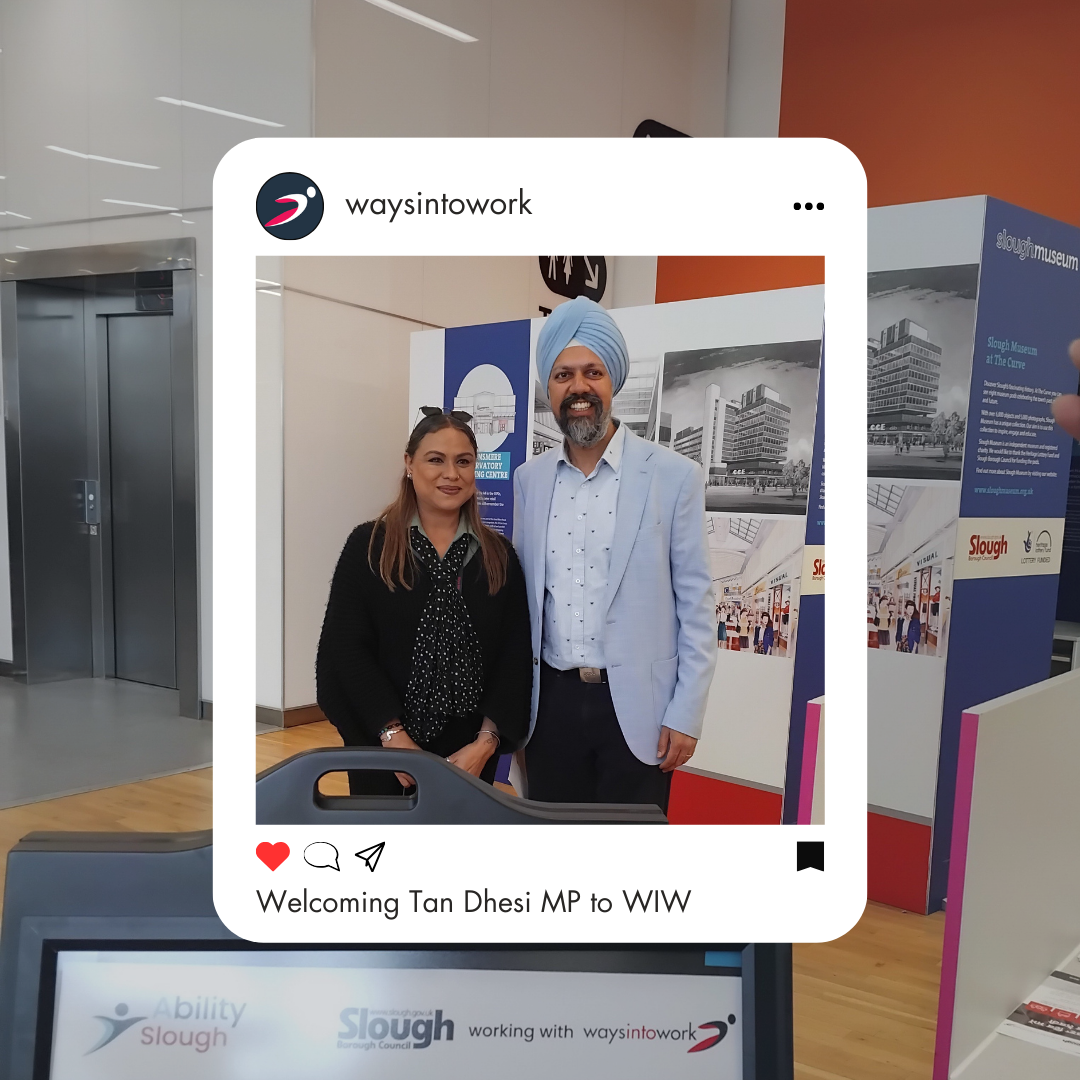It's official - LOCAL employment support works best!
Debra Burnett • August 11, 2021
Work and Pensions Committee report on the Disability Employment Gap
The Work and Pensions Committee has released its report on the disability employment gap and are calling for a radical overhaul and a new ambitious target to break down unacceptable employment barriers faced by disabled people.
The Committee has called on the Government to re-adopt its previous target of halving the gap, which currently stands at an increased 30 percentage points, stating a new more ambitious target of getting an additional 1.2 million disabled people into work by 2027 should also be introduced. Research by disability charity Leonard Cheshire set the scene suggesting that 71% of disabled people have had their work impacted by the pandemic, compared with 61% of non-disabled people.
The report is music to our ears! From our point of view the report makes some very overdue and welcome recommendations advocating for a more local
approach to commissioning employment support.
Committee Chair, Stephen Timms, said "The currently, overly centralised model of support simply isn’t working. We need a radical new localised approach. Support for finding and staying in a job that is much more personalised, flexible and effective should be delivered by groups of local authorities working with the NHS, training providers and charities.”
This is something that we and BASE (the British Association for Supported Employment) have been advocating for, for some time. The outstanding outcomes that supported employment organisations achieve speak for themselves. The Inquiry reported that many charities and organisations were critical of the DWP’s centralised approach to employment support, with its main programme, the Work and Health Programme (WHP) currently commissioned at a national level. The Centre for Social Justice Disability Commission said that only 14% of disabled participants on the Work Programme, the predecessor to WHP, were supported into work.
Building local relationships and partnership working is the way to go. By contrast Ways into Works outcomes are sitting around 60% of our clients in work and 90% retained in long term employment.
In the past many local authorities funded this support for their residents but austerity has meant budget cuts for non-mandatory services. The Committee calls on the DWP to take a new approach, granting more powers and funding to groups of local authorities to set up their own versions of the Work and Health Program. (p25 of the report).
Ways into Work completely supports this - bring it on - we are ready and waiting to Change
more
Lives, One Job at a Time! The report made many recommendations in terms of :
- Supporting disabled people into work
- Supporting disabled people in the workplace
- The disability benefits system
- DWP’s engagement with disabled people
You can read the full Work and Pensions Inquiry Report here.
Find out more about how we support Job-Seekers and how we can help Employers
to access a talented untapped workforce increasing diversity and inclusion in their organisation. Get in touch
- we'd love to hear from you.
More Posts

Ways Into Work was a part of the recent CVS Slough event at Singh Sabha, where our colleague Rahma and Monica joined other incredible organisations, all working towards one shared goal: improving the wellbeing of our community. 🤝 A huge congratulations to Asma Aziz on her appointment as Chief Executive Officer of CVS Slough! Her inspiring leadership brought the event together, highlighting the power of unity and collaboration. From meaningful discussions to a fun and thoughtful quiz session, we were able to share ideas, listen, and learn from others including Turning Point, Frimley Health, Youth Parliament, and many more. It was truly energising to see how aligned we all are in our missions.💙

It was great to get a chance to talk to Tan Dhesi MP – Member of Parliament for Slough, on his recent visit to The Curve. He was very interested in the work we do and the positive impact it has supporting people with barriers to employment, into paid work. Our Charity successfully works with those most affected not only helping to ‘Get Britain Working’ but also meeting our mission of ‘Changing Lives One Job at a Time’. We look forward to continuing the dialogue with him to further benefit residents of Slough.

Watch Ashonte shine at the Marks and Spencer’s Simply Food store situated in Royal Berks Hospital! 🌟 Our supported intern is confidently taking on new tasks every day, from restocking to serving customers on the tills. Ashonte's hard work and positive attitude are inspiring! ✨ A huge thank you to M&S, Royal Berks, who have supported many young people year after year. This year they are providing Ashonte with this amazing opportunity and once again helping us to break down the barriers for young people with a disability in gaining employment. A huge thank you to Marks and Spencer's for their commitment to empowering young people with barriers to employment by helping them develop the skills they need. Want to see Ashonte in action? Click here to watch the inspiring video!



